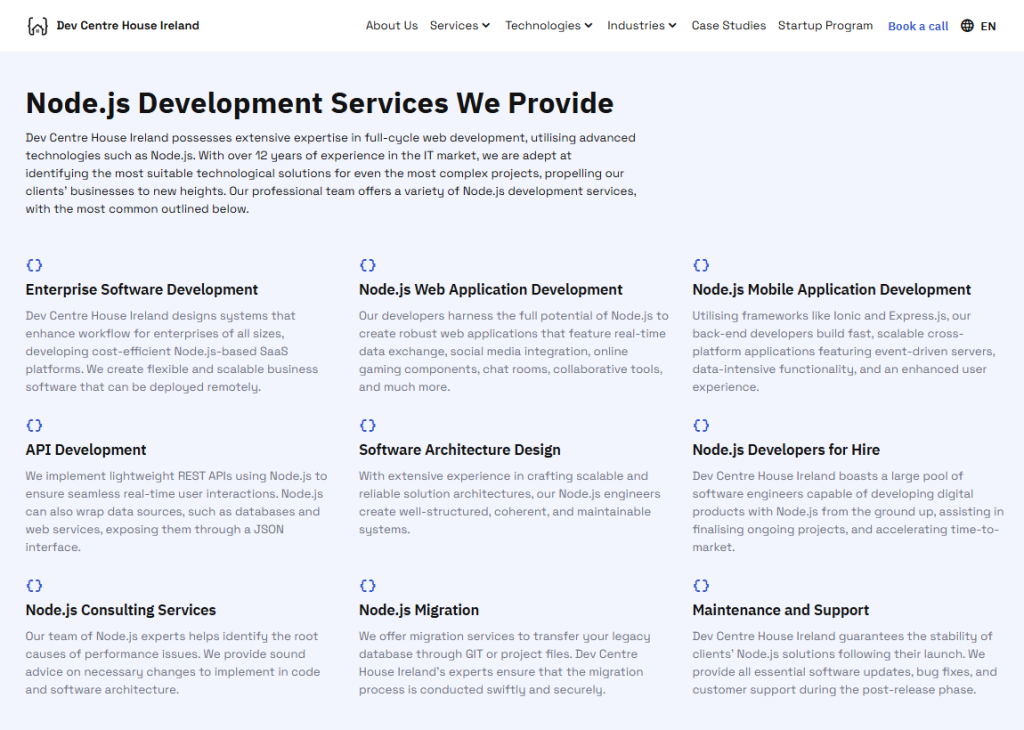Node.js is widely used for building scalable APIs, but performance bottlenecks can hinder its efficiency. Optimising your API ensures fast response times, reduced latency, and a better user experience. Here are ten proven techniques to enhance your Node.js API performance.
1. Enable Gzip Compression
Compressing responses reduces payload size, improving load times. Use the compression middleware in Express to enable Gzip:

2. Use Asynchronous Code Efficiently
Blocking operations can slow down your API. Use asynchronous programming with async/await or Promises to handle I/O tasks efficiently:

3. Optimise Database Queries
Inefficient queries can degrade API performance. Use indexing, pagination, and query optimisations to improve database efficiency. For example, in MongoDB:

4. Implement Caching
Caching prevents redundant computations and database queries. Use Redis to cache frequently requested data:

5. Use Cluster Mode
Node.js runs on a single thread by default. Utilising clustering can take advantage of multi-core processors:

6. Reduce Middleware Overhead
Too many middlewares can slow down requests. Use only necessary middleware and avoid redundant processing.
7. Use Connection Pooling
For APIs with high database traffic, connection pooling improves efficiency. In PostgreSQL, use pg-pool:

8. Limit Payload Size
Restrict request sizes to prevent excessive processing. In Express, set limits in body-parser:

9. Implement Rate Limiting
Prevent abuse and API overuse by applying rate limiting using express-rate-limit:

10. Monitor and Profile Performance
Use tools like pm2, New Relic, or Node.js Performance Hooks to monitor your API and identify bottlenecks.
By implementing these techniques, you can significantly improve the speed and efficiency of your Node.js API, leading to better scalability and performance. Try them out and experience the difference!
Node.js: Key Takeaways from Dev Centre House Ireland

In conclusion, Node.js stands out as a powerful and versatile runtime environment for building scalable and high-performance backend applications. Its event-driven, non-blocking architecture, coupled with the vast npm ecosystem, enables developers to create efficient and responsive solutions. Whether you’re building real-time applications, APIs, or microservices, Node.js offers a robust foundation for modern web development, making it a valuable asset in any developer’s toolkit.
For further exploration and learning, refer to the detailed information provided in the resource: https://www.devcentrehouse.eu/en/technologies/back-end/nodejs.
FAQ
Question: What are effective ways to improve Node.js API response times?
Answer: Techniques like enabling HTTP/2, caching responses, using clustering, and optimising database queries can dramatically reduce latency. Dev Centre House Ireland implements these best practices to build fast and efficient APIs.
Question: How does caching help speed up APIs?
Answer: Caching frequently requested data reduces the need for repeated database calls. Dev Centre House Ireland integrates caching layers like Redis to improve performance and scalability.
Question: Why is clustering useful for Node.js applications?
Answer: Clustering enables multiple Node.js processes to run across CPU cores, improving concurrency and throughput. Dev Centre House Ireland configures clustering setups to maximise server utilisation.
Question: What role does database optimisation play in API speed?
Answer: Indexing, query batching, and connection pooling reduce database overhead. Our team at Dev Centre House Ireland optimises database interactions to enhance API responsiveness.
Question: Can HTTP/2 improve Node.js API performance?
Answer: Yes. HTTP/2 enables multiplexed requests and header compression, reducing latency. Dev Centre House Ireland configures HTTP/2 where supported to improve throughput.
Question: How does code profiling help speed up APIs?
Answer: Profiling identifies performance bottlenecks in your code. Dev Centre House Ireland uses tools like Node.js profiler and Flamegraphs to target and fix inefficiencies.
Question: Should I use asynchronous patterns in API routes?
Answer: Absolutely. Using async/await and avoiding blocking operations ensures better concurrency. Dev Centre House Ireland applies async best practices to maintain API performance.
Question: How do middleware and request handling affect performance?
Answer: Minimising unnecessary middleware and using efficient routing improves performance. Dev Centre House Ireland structures middleware stacks to keep requests fast and lean.
Question: Is it beneficial to offload heavy computations in Node.js?
Answer: Yes. Heavy tasks should be offloaded to worker threads or external services. Dev Centre House Ireland uses such architectural patterns to maintain API responsiveness.
Question: How does compression improve API performance?
Answer: Gzip or Brotli compression reduces data size in transit. Dev Centre House Ireland enables and configures compression to optimise network efficiency.
Question: What role does rate limiting play in API stability?
Answer: Rate limiting prevents abuse and maintains API responsiveness under load. Dev Centre House Ireland implements rate limiting to ensure stable API performance.
Question: How can I ensure my Node.js API remains fast as it scales?
Answer: Combine profiling, caching, clustering, async patterns, and monitoring to maintain performance. Dev Centre House Ireland supports scalable, performance-oriented Node.js architectures. Learn more at https://www.devcentrehouse.eu.
